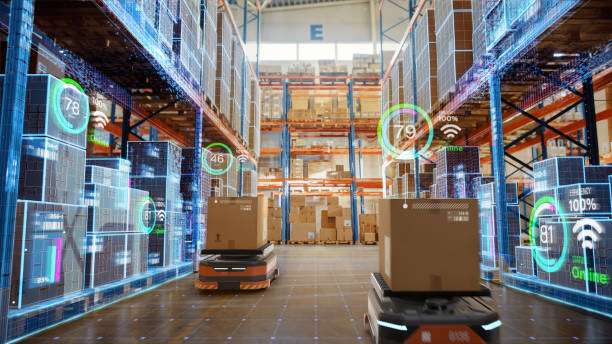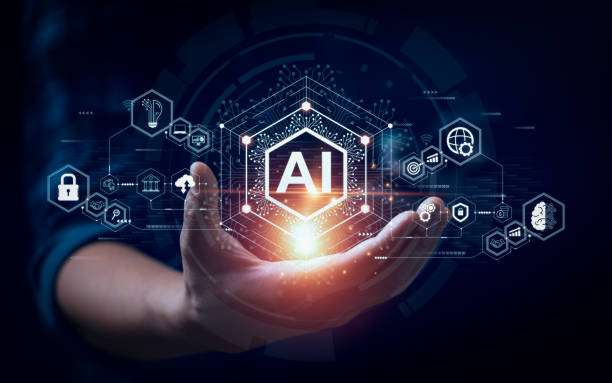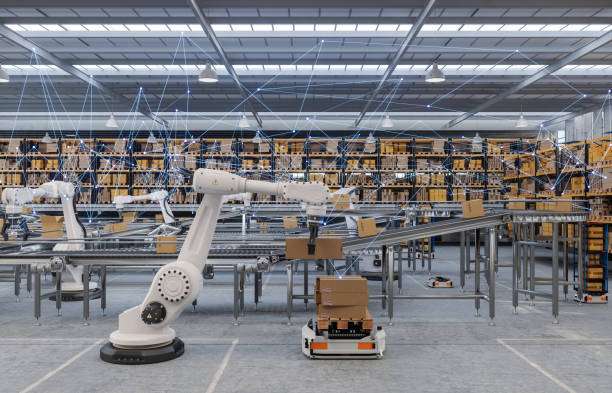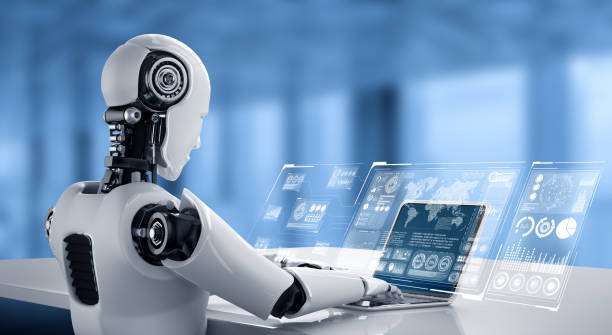Unlocking the Potential of Artificial Intelligence Benefits, Advantages, and Use Cases
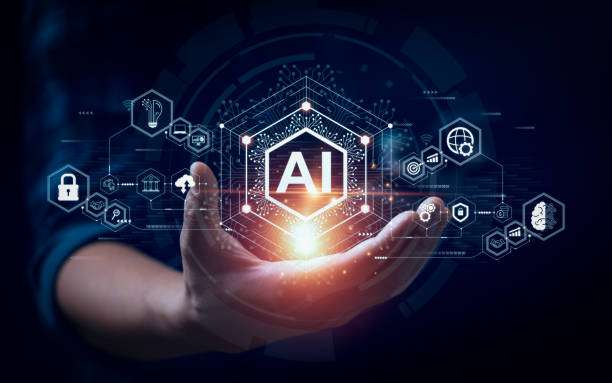
September 22, 2023
As technology advances, Artificial Intelligence (AI) is becoming increasingly important in a variety of industries. AI is a powerful tool that can revolutionize the way businesses, healthcare, education, manufacturing, security, and big data industries operate. As AI technology continues to develop, it has significant potential to bring about numerous benefits and advantages. The purpose of this blog post is to explore why Artificial Intelligence is so important, its numerous benefits, advantages, and disadvantages, and its various applications in business, healthcare, education, manufacturing, security, big data, automation, robotics, and the use cases it can be applied to. We will also look at the potential of AI and its impact on our future, such as the future of work and AI-powered solutions. Additionally, this post will look at AI technologies, advancements, and the industry as a whole.
Why Is Artificial Intelligence Important?
The world is in the midst of a technological revolution where the integration of Artificial Intelligence (AI) into everyday life is becoming increasingly more prevalent. AI technologies have the potential to revolutionize the way we live and work, bringing significant societal, economic, and business benefits.
AI tools provide the ability to analyze large amounts of data and help businesses make better-informed decisions. AI automation can also reduce tedious manual tasks and streamline processes, allowing businesses to do more with less and achieve greater efficiency and cost savings. AI-powered solutions can be used to personalize customer service offerings, which can help businesses gain a competitive advantage and improve customer loyalty.
In healthcare, AI technologies can enable more efficient diagnosis and treatment of patients, as well as help reduce medical errors. AI data management tools can process vast amounts of healthcare data and identify patterns and trends. AI-based solutions can also be used to reduce wait times, shorten hospital stays, and improve the quality of patient care.
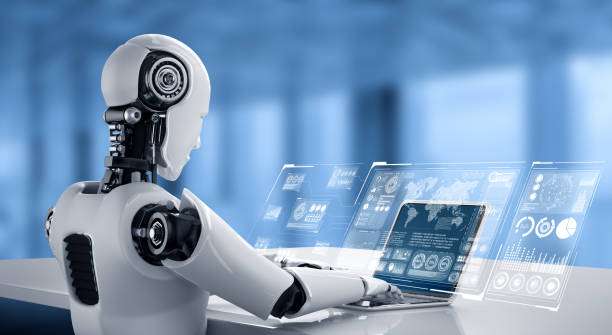
AI technology is also driving the advancement of manufacturing. AI automation can facilitate improved quality control and reduce the risk of human error. AI intelligent systems can be used in predictive maintenance to help identify potential issues before they become a problem. AI can also be used to identify issues with supply chain operations, which can improve the overall efficiency and effectiveness of a manufacturing organization.
AI technologies are also revolutionizing the security sector, making it more effective at detecting potential threats and reducing false positives. AI-powered solutions can be used to identify possible breaches and analyze large amounts of data to detect anomalies. Additionally, AI technology is helping to improve facial recognition technology, enabling enhanced security measures.
AI technologies have also made their way into the classroom, where they can facilitate personalized learning and improved student engagement. AI-driven solutions such as Virtual Personal Assistants (VPAs) can be used to provide students with access to personalized feedback and educational materials.
Overall, the potential of AI technology is vast and the benefits for businesses, healthcare professionals, manufacturers, and students can be significant. AI can help businesses increase efficiency and productivity, reduce costs, and stay competitive. It can help healthcare providers enhance patient care while reducing the risk of medical errors. It can improve the quality and efficiency of manufacturing and help to protect businesses and people from potential threats. And, it can revolutionize the way students learn and help them develop the skills and knowledge they need to succeed in the future.
The development of Artificial Intelligence (AI) has been a game-changer in many industries. This technology offers numerous benefits, from automation and increased efficiency in businesses, to improved healthcare treatments, to educational advancements. AI tools and advancements can be used for a variety of purposes, such as data management, predictive analysis, voice recognition, image recognition, natural language processing, and security. AI has the potential to revolutionize the future of work, and the impact it will have on society is already evident. Whether it be in manufacturing, banking, or transportation, AI-based solutions, machine learning, and automation are quickly changing the way business is done. It is important to understand the advantages and potential risks of AI to harness it and maximize its benefits.
Artificial Intelligence (AI) is important for a variety of reasons, and its impact extends across numerous fields.
Automation and Efficiency: AI can automate repetitive tasks and processes, which leads to increased efficiency and productivity. This is particularly important in industries like manufacturing, customer service, and healthcare.
Decision Support: AI can analyze vast amounts of data and provide insights to aid in decision-making.
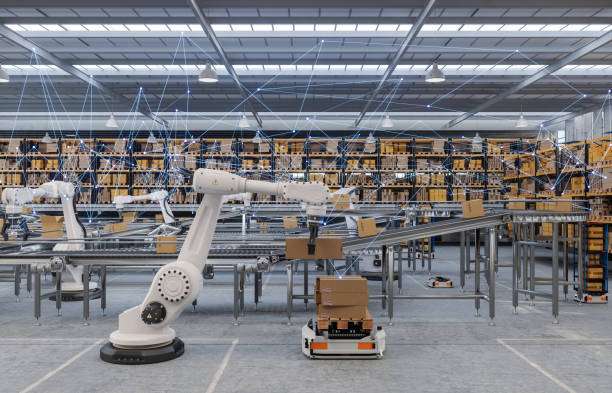
Problem Solving: AI can tackle complex problems that may be beyond the capabilities of human beings. For instance, in fields like climate modeling, drug discovery, and astrophysics, AI can process massive amounts of data to find patterns and make predictions.
Personalization and Customization: AI can analyze user behavior and preferences to deliver personalized experiences. This is evident in recommendation systems used by companies like Amazon, Netflix, and Spotify.
Enhancing User Experience: AI-powered chatbots and virtual assistants improve customer service by providing instant responses to queries, solving problems, and offering assistance 24/7.
Medical Applications: AI is used in healthcare for tasks like medical imaging analysis, drug discovery, and personalized treatment plans.
Natural Language Processing (NLP): NLP enables machines to understand, interpret, and generate human language. This is used in applications like translation services, sentiment analysis, and voice assistants.
Autonomous Systems: AI is essential in developing autonomous vehicles, drones, and robots. These systems can navigate and make decisions based on their surroundings.
Predictive Analytics: AI algorithms can make accurate predictions based on historical data. This is used in various fields, including finance for risk assessment and in retail for demand forecasting.
Enhancing Creativity: AI can assist in creative tasks like generating art, music, and writing. It can help artists and content creators by providing inspiration and generating new ideas.
Enhanced Security: AI is used for cybersecurity to detect and prevent threats in real time. It can analyze network traffic patterns and identify suspicious activities.
Accessibility and Inclusion: AI can be used to develop technologies that make digital content more accessible for people with disabilities, improving inclusivity.
Scientific Research: AI is used in scientific research to process large datasets, simulate experiments, and make discoveries in fields like physics, chemistry, and biology.
Economic Impact: AI can drive economic growth by creating new industries and job opportunities. It can also lead to cost savings for businesses through automation.
Addressing Global Challenges: AI can be applied to tackle some of the world's most pressing issues, such as climate change, poverty, and healthcare disparities.
AI has the potential to revolutionize various aspects of our lives and industries. Its importance lies in its ability to process large volumes of data, make intelligent decisions, and perform tasks that were once exclusive to human capabilities. However, it's also important to consider ethical implications, transparency, and responsible deployment of AI to ensure that its benefits are maximized while minimizing potential risks.
Exploring the Benefits of Artificial Intelligence
The world is becoming an evermore connected place, leading to the emergence of artificial intelligence (AI) as the technology of choice for powering the most innovative products. AI is a powerful tool that is beginning to revolutionize the way businesses and individuals go about their everyday tasks, and it can be used in almost any field.
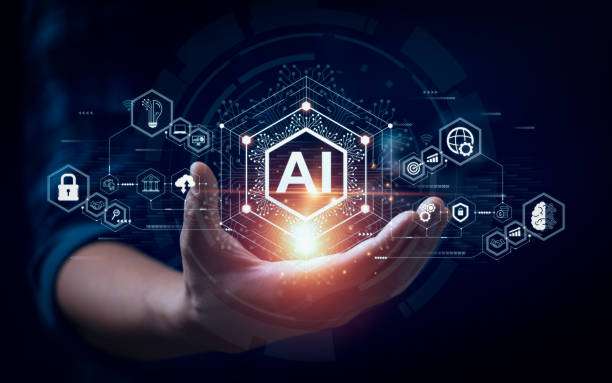
What makes AI so useful, is its ability to quickly and accurately analyze data, enabling businesses to make smarter decisions and allow machines to learn from experience and improve over time. AI enables more accurate predictions of trends and outcomes which would otherwise be difficult to make due to the sheer complexity of the data.
In addition to the analytical advantages of AI, it also offers businesses and individuals some other advantages. AI is able to automate complex tasks which would otherwise require a huge amount of time and effort. This can help to significantly reduce costs across the board, as it eliminates the need for human labor to complete tasks.
AI is also proving to be an invaluable tool for customer service. Chatbots and virtual assistants are becoming increasingly sophisticated and are able to accurately answer questions and provide assistance to customers. This can vastly improve customer experience, as customers can get assistance much more quickly and accurately.
Moreover, AI is helping to create new possibilities through automation. Robots and autonomous vehicles are being used to perform a wide variety of tasks that would otherwise require human intervention, from manufacturing and delivery to healthcare. This automation is allowing businesses to do more with less, as well as freeing up humans to focus on higher-value tasks that require creativity and problem-solving skills that robots are unable to do.
The benefits of AI are clear, and it is becoming an increasingly important technology for businesses and individuals alike. As AI continues to evolve, the possibilities for what it can do are expanding and opening up whole new realms of innovation and opportunity.
Harnessing AI Technology for Business Growth
Artificial intelligence (AI) is becoming an increasingly important technology in the business world. With its ability to help companies collect, analyze, and act on data faster and more effectively, AI is revolutionizing the way businesses operate.
The potential of AI is evident in its ability to automate tasks, providing businesses with the ability to save both time and money. Businesses can automate everything from customer service to basic data entry, freeing up resources for more important work. In addition, AI can augment the capabilities of teams, allowing them to make better decisions and gain valuable insights.
AI can also be used to analyze customer behavior and usage patterns, allowing businesses to better understand customer needs. This can lead to more personalized services and products that match customer preferences. It can also help businesses identify trends and areas where they may need to adjust their strategies.
AI also helps businesses to react quickly to changes in the business environment, allowing them to stay agile and competitive. By leveraging AI technology, businesses can rapidly collect and analyze data, allowing them to make timely decisions and stay ahead of the competition.
In addition, AI can help businesses detect fraud and cyber-attacks, protecting them from potential losses. AI is able to detect patterns in data that would be difficult for human experts to identify. This enables businesses to detect potential fraud and protect their assets.
Overall, AI is essential for businesses that want to stay ahead and grow. By leveraging the power of AI technology, businesses can automate mundane tasks, gain valuable insights about their customers, stay agile and competitive, and protect their assets. AI can help businesses improve their operations and grow their bottom line. Investing in AI technology is essential for businesses that want to stay on the cutting edge and make a lasting impact in the market.
Introduction to AI-Powered Solutions
AI-powered solutions are quickly becoming a key component of modern technology. By combining advanced technologies such as machine learning, natural language processing, and computer vision, businesses are able to create smarter, more efficient tools for various tasks. These solutions are not only saving time and money but also helping to increase productivity and accuracy.
In a nutshell, AI-powered solutions are automated systems that can learn from past experiences and develop a range of rules and algorithms to make better decisions. AI solutions can be applied to fields such as healthcare, finance, engineering, sales, marketing, logistics, cybersecurity, and customer service.

One of the key benefits of AI-powered solutions is its ability to automate repetitive tasks. With machine learning, AI systems can analyze huge amounts of data to discover patterns and insights. This can be used to automate mundane tasks such as data entry, customer support, and analytics. AI can also be used to automate customer service by recognizing customer requests and responding to them with personalized solutions or automated chatbots.
Another major benefit of AI-powered solutions is its ability to improve accuracy. By using deep learning algorithms, AI can identify and analyze patterns in data sets and then use this data to develop predictions and recommendations. These improved accuracy levels can help businesses increase their efficiency and save costs.
In addition, AI-powered solutions can help increase customer experience by providing personalized, tailored recommendations. AI can analyze customer behavior and suggest products that are tailored to their needs. This can also be used to investigate customer issues and provide solutions quickly and accurately.
AI-powered solutions are quickly becoming integral to a wide range of industries. By automating mundane tasks and improving accuracy levels, businesses can save time, money, and effort. AI can also provide customers with personalized experiences, helping to increase customer satisfaction. AI-powered solutions are here to stay, and businesses should start taking advantage of them if they want to stay competitive.
Unlocking the Potential of Artificial General Intelligence
What is Artificial General Intelligence (AGI)? AGI is a type of artificial intelligence that is capable of tackling a wide variety of problems, displaying a level of general intelligence comparable to human beings. In contrast to narrower forms of AI, such as machine learning and deep learning, AGI has the potential to truly think like humans and learn from experience.
The potential of AGI is immense. With AGI, we could see major breakthroughs in areas such as robotics, healthcare, finance, and more. AGI could act as a veritable reasoning engine that can analyze data and reach conclusions on its own, potentially leading to better, faster decisions and more efficient problem-solving.
The key to unlocking the potential of AGI is to understand how it works. We have to first understand what sets AGI apart from other forms of AI. AGI relies on a combination of advanced machine learning algorithms and a vast repository of knowledge collected from natural language processing, image recognition, and more. It is also capable of making decisions in an entirely unbiased and autonomous manner.

With the right environment and support, AGI has the potential to revolutionize industries and our everyday lives. For example, AGI could be used to diagnose diseases, identify inefficiencies in businesses, and even optimize our daily routines.
In order to harness the power of AGI, however, AI researchers and developers need to focus on creating systems that can truly think like humans. They must develop methods that allow the systems to learn from experience, make decisions, and adapt to their environment. This involves developing advanced machine learning algorithms and leveraging natural language processing and other forms of AI.
Moreover, AGI researchers must also focus on developing ethical frameworks for AGI. As AGI systems become increasingly sophisticated, experts must ensure that these systems are designed to operate responsibly and ethically.
At the end of the day, unlocking the potential of AGI is an exciting prospect. It could open up new and exciting possibilities in a wide range of areas, from healthcare to robotics. With the right supervision and development, AGI has the potential to revolutionize the way we work and live.
How AI and Automation are Revolutionizing Manufacturing
One of the biggest trends in manufacturing today is the adoption of artificial intelligence (AI) and automation. These powerful technologies are beginning to revolutionize the way that manufacturers create products, improving efficiency, accuracy, and flexibility for everyone involved.
AI and automation are enabling manufacturers to take advantage of the data they collect about their customers, processes, products, and more. By analyzing this data, AI-powered systems can identify potential issues and recommend ways to increase efficiency. Automation takes these insights and puts them into action, helping manufacturers automate their processes in order to reduce errors and improve quality.
The combination of AI and automation is leading to faster product development cycles and increased production capabilities. Manufacturers can now develop and deliver products faster than ever before, reducing time-to-market and allowing them to stay ahead of the competition. Additionally, automation is helping with the development of custom products, allowing manufacturers to quickly and accurately produce products tailored to their customers’ needs.
AI and automation are also making manufacturing more efficient. For example, robotics can be used to reduce the number of workers needed in the manufacturing process. This can lead to lower labor costs while also reducing the risk of human error. The combination of AI and robotics also makes it possible to detect malfunctions early on, helping reduce waste and ensuring that products are of the highest quality.
Finally, AI and automation are helping manufacturers increase their sustainability. Automation allows manufacturers to create products in a more efficient manner, using fewer resources and cutting down on waste. Additionally, AI can help identify potential problems before they become too costly, saving manufacturers time and money.

Overall, AI and automation are revolutionizing the manufacturing industry. By leveraging data, automating processes, and reducing waste, these powerful technologies are enabling manufacturers to develop and deliver products faster and more efficiently than ever before. This pace of innovation is only going to accelerate in the near future, as AI and automation continue to improve production capabilities and open up new possibilities for manufacturers.
Exploring the Benefits of AI for Healthcare
AI has long been viewed as an invaluable asset to the healthcare industry. With the power to drastically improve the speed of diagnosis and access to patient records, AI is becoming a popular addition to healthcare technology.
AI can help reduce errors in data collection and analysis, which can lead to more accurate diagnosis and treatment for patients. AI can be used to analyze large volumes of data quickly, allowing healthcare professionals to make faster, more informed decisions about patient treatment. This can lead to shorter hospital times as well as fewer mistakes and misdiagnoses.
AI also has the potential to help identify patterns in patient data that would otherwise go unnoticed. By using AI to analyze data, healthcare professionals can quickly identify patterns in various areas such as disease outbreaks, changes in symptoms, and other statistical trends. This can lead to improved patient outcomes, making it easier to determine the best treatment for each patient.
AI also improves the accuracy of medical imaging tests. By using AI-driven algorithms, healthcare professionals can analyze the data from medical tests more quickly and accurately. This technology can help to identify problems or abnormalities in the data that may not have been previously detected. This leads to an improved patient experience, as well as increased accuracy of diagnosis and treatment.
Finally, AI has the power to help reduce healthcare costs and improve patient satisfaction. By incorporating AI into the healthcare system, healthcare professionals can reduce labor costs and provide better, more efficient care. AI can also help to automate tasks such as scheduling appointments and managing patient records, which can free up resources for staff to focus on providing higher-quality patient care.
In conclusion, the use of AI in healthcare is growing rapidly, and the benefits are undeniable. By using AI to improve the accuracy of diagnoses, identify patterns in patient data, improve medical imaging tests, and reduce healthcare costs, the healthcare industry is quickly becoming a smarter, more efficient workplace. In the coming years, AI will continue to revolutionize healthcare, providing invaluable aid to healthcare professionals and an improved experience for patients.
Harnessing Machine Learning with Artificial Intelligence
In recent years, the world of technology has made significant advancements in the areas of machine learning and artificial intelligence. Driven by the ever-growing need for automation, both of these technologies are becoming increasingly important in modern-day operations.
For those who may not be familiar, machine learning is a subset of artificial intelligence that focuses on creating algorithms and models that can "learn" and make decisions on their own. This is achieved through the use of algorithms and large datasets. Machine learning can be used for a variety of applications, such as image recognition, natural language processing, and autonomous driving.
At the same time, artificial intelligence is the science of simulating the behavior of humans by using computer systems. Artificial intelligence is used in many fields such as banking, healthcare, and transportation. It is used to automate complex processes and can analyze large data sets to draw conclusions and detect patterns. This technology is already used in self-driving cars, virtual personal assistants, and automatic medical diagnostics.
While both machine learning and artificial intelligence have been around for quite some time, it is only in recent years that we have seen them merge together to form more advanced technology. By harnessing the power of both technologies, businesses can reduce the amount of time required to complete complex tasks and improve operational efficiency.
For example, in the medical field, machine learning and artificial intelligence can be used to quickly review medical data and provide doctors with actionable insights. Additionally, our cars are already beginning to use artificial intelligence to recognize objects, stay in their lane, and even become autonomous.
In conclusion, it is clear that machine learning and artificial intelligence can be used to great effect when combined. By leveraging the power of both technologies, businesses can save time, increase efficiency, and gain valuable insights. Although both technologies have a long way to go before they are fully mature, their potential is undeniable.
Understanding AI Security and Its Impact

When it comes to technology, the security of data and information has always been a major concern. As artificial intelligence (AI) technology has advanced and become more prevalent, it has become increasingly important to understand AI security and its implications.
AI technologies are widely used for tasks such as managing large amounts of data and making decisions based on the data. AI systems can identify patterns in data that humans may not be able to recognize, making them invaluable for a variety of applications. However, AI-based systems are not infallible and can be vulnerable to malicious attackers, who may try to gain access to or manipulate sensitive data.
In order to ensure that AI technologies are secure, organizations must take steps to protect against potential attacks. AI security starts with educating individuals, from developers to users, on the risks associated with AI systems. Understanding how an attacker may attempt to exploit an AI system will help developers identify and address potential vulnerabilities early in the development process.
Organizations should also implement measures to protect AI systems from malicious attacks. For example, organizations may use encryption to protect data and secure communication channels. Security measures can also be put in place to monitor AI systems and alert administrators when suspicious activity is detected.
It is also important to understand the ethical implications of AI security. AI systems are often used in making decisions, such as determining which applicants should be given a job or loan. If AI systems are not adequately protected against malicious actors, this could lead to discrimination or unfair outcomes. Understanding the ethical implications of AI security is an important step in ensuring that AI systems are used fairly.
In conclusion, it is essential for organizations to understand AI security and its impact. Implementing measures to protect AI systems from malicious attacks and understanding the ethical implications of AI security are important steps in ensuring that AI technologies are secure and used responsibly. By taking these measures, organizations can ensure that AI technologies have a positive impact on society.
AI and the Future of Work: A Closer Look
The Future of Work is a fascinating topic of debate within the industry. With technology developing fast, it’s clear that Artificial Intelligence (AI) and automation will play a major role in the future of our work and the shape of the labor market. However, what exactly is AI, and how will it change the way we work?
AI is a branch of technology where machines are taught to think and perform tasks like humans. AI has a wide range of possible applications, including improving customer experience, replacing manual labor, automating processes, and even creating entirely new services. In the workplace, AI can be used to automate mundane and time-consuming tasks, reduce human error, and even improve decision-making.
AI is already having a major impact on the labor market. With automation, repetitive and manual tasks are increasingly being handled by machines, allowing businesses to reduce labor costs and increase efficiency. Furthermore, AI can help to reduce the amount of training needed to perform a certain task, as well as enhance the overall quality of the output. This is especially true of customer service, where AI can help to create personalized experiences for customers, as well as provide accurate and timely responses.
Furthermore, AI can also be used to improve decision-making. For example, AI-driven predictive analytics can provide insights into customer behaviour which can help businesses make better decisions. AI can also be used to identify patterns and trends in data which can be used to inform strategies and make better business decisions.
Overall, AI is set to completely revolutionize the way we work and the shape of the labor market. Automation will reduce the need for manual labor and allow businesses to reduce labor costs and increase efficiency. AI-driven predictive analytics can provide powerful insights into customer behavior, and AI can also be used to improve decision-making. As a result, AI promises to be the cornerstone of the future of work.
Exploring the Impacts of AI Technologies in Business and Beyond
As artificial intelligence (AI) rapidly evolves, its impacts can be seen in business processes and beyond. AI technologies are providing opportunities for companies to save time, money, and resources in tasks such as automated customer service, finance management, and predictive analytics.
In customer service, AI-powered chatbots can provide support, engage with customers, answer questions, and provide insights. Chatbots are quickly becoming a common customer service tool, as they are able to assist customers around the clock at a lower cost than human agents do.
In finance management, AI is helping to streamline processes and reduce overheads. AI technologies have already become integral components of many large corporations’ accounting departments, and are expected to become mainstream in the near future.
AI technologies are also being used in predictive analytics, which allow companies to anticipate customer demands and market conditions. This helps companies to better plan and prepare for their operations, allowing them to stay ahead of their competition.

Finally, AI technologies are being leveraged in more innovative ways. AI-driven robots are being used in education and healthcare sectors, as well as in creative tasks such as music composition and art. AI-driven autonomous vehicles are also being tested on the roads, which could revolutionize the future of mobility.
Overall, AI technologies are having a profound impact on business processes and beyond. AI technologies are enabling businesses to save time, money, and resources while providing better customer service, improved financial management, and predictive analytics. They are also being used in more innovative ways, such as in education, healthcare, and autonomous vehicles. As AI continues to expand, its applications and implications are sure to continue to evolve.
Unlock the Benefits of Training Artificial Intelligence
Artificial Intelligence (AI) is transforming businesses around the world, and with the right training and implementation, you can harness the power of AI for your own success. Unlock the potential of AI and explore the benefits of its applications to business, healthcare, education, manufacturing, security, big data, automation, robotics, and more.
•Train Artificial Intelligence algorithms using machine learning and artificial intelligence technologies
•Explore AI's advantages and use cases in business, healthcare, education, manufacturing, security, and more
•Harness the power of AI-powered solutions for business growth
•Gain insights into the impact of AI on the future of work
•Unlock the potential of AI and explore the benefits of its applications
Summary
- Artificial Intelligence (AI) is becoming increasingly important in various industries
- AI has the potential to revolutionize the way we live and work, bringing significant societal, economic, and business benefits
- Applications in business, healthcare, education, manufacturing, security, big data, automation, robotics, and other fields include personalization, data management, predictive analysis, voice recognition, image recognition, natural language processing, and security
- The benefits of AI technology for businesses, healthcare professionals, manufacturers, and students can be significant, including increased efficiency, productivity, cost savings, and improved patient care and education
- It is important to understand the advantages and potential risks of AI to harness its benefits and maximize its potential
- Machine learning and automation are quickly changing the way business is done, with AI-based solutions, machine learning, and automation rapidly changing industries like manufacturing, banking, and transportation
- Personalized learning and improved student engagement can be facilitated through AI-driven solutions such as Virtual Personal Assistants (VPAs)
- Amazon, Spotify, and Netflix are examples of industries where AI can support problem-solving and customer service.
Just as Christian McCaffrey recently surpassed the 5000-yard mark, setting a new milestone in his career, our company, SanjayLathiya.com, is also breaking new ground in the field of Artificial Intelligence.
Our latest blog post, "Unlocking the Potential of Artificial Intelligence Benefits, Advantages, and Use Cases" is a testament to our commitment to pushing the boundaries of what's possible with AI.
Much like how McCaffrey's elite rushing and receiving ability has carved a new path forward in the modern NFL, our innovative AI solutions are paving the way for businesses to leverage the power of AI for their growth and success.
Just as McCaffrey got more familiar with Kyle Shanahan's zone-blocking scheme leading to more big plays, our team is constantly learning and adapting to the latest AI technologies to deliver the best results for our clients.
Check out our blog post here: https://www.sanjaylathiya.com and discover how AI can revolutionize your business.
At SanjayLathiya.com, we're all about "Shipping. 100% Customer Happiness."
#AI #ArtificialIntelligence #Technology #Innovation #SanjayLathiya #CustomerHappiness
FAQS
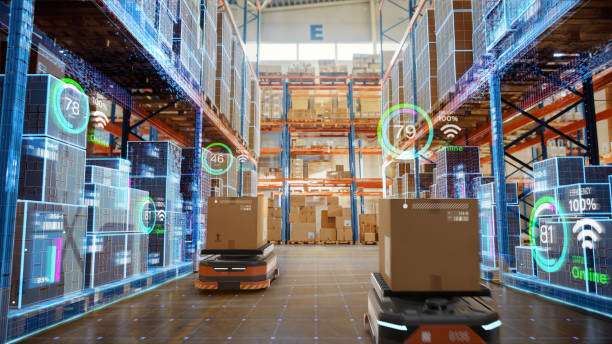
Q1: What are the benefits of Artificial Intelligence?
A1: Artificial Intelligence offers numerous benefits including improved efficiency, cost savings, increased accuracy and precision, enhanced customer service, improved safety and security, and the ability to automate processes.
Q2: How can Artificial Intelligence be used in business?
A2: AI can be used in business for predictive analytics, data management, machine learning, process automation, and more.
Q3: What are the advantages of Artificial Intelligence?
A3: AI offers advantages such as improved decision-making, increased speed and accuracy, increased productivity and efficiency, improved customer service, and better security.
Q4: What is Artificial General Intelligence?
A4: Artificial General Intelligence (AGI) is a form of AI that is capable of performing any intellectual task that a human can, such as general problem-solving, planning, learning, decision-making, and language understanding.
Q5: What is the impact of Artificial Intelligence?
A5: AI has the potential to revolutionize the way businesses, healthcare, education, manufacturing, security, and big data industries operate. AI can also have a major impact on our future, such as the future of work and AI-powered solutions.


